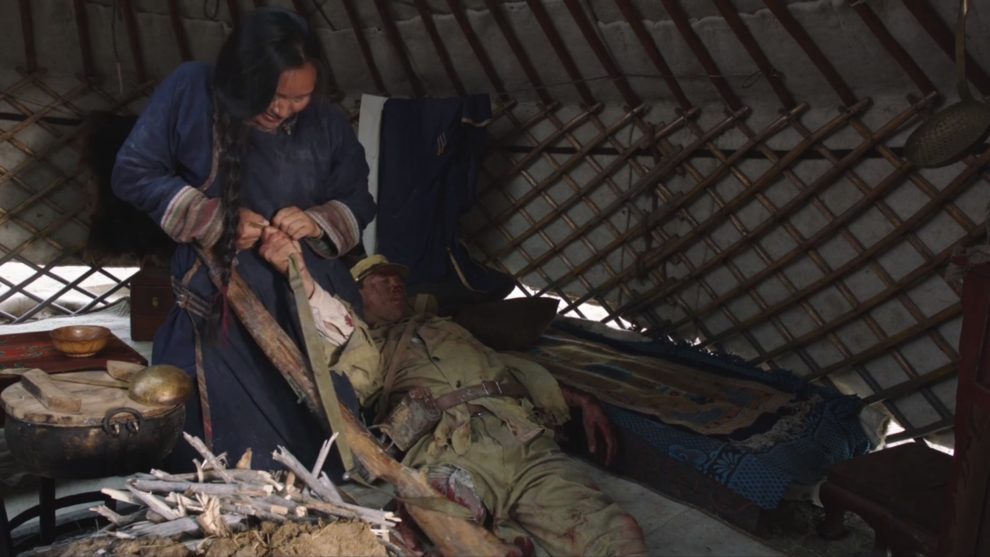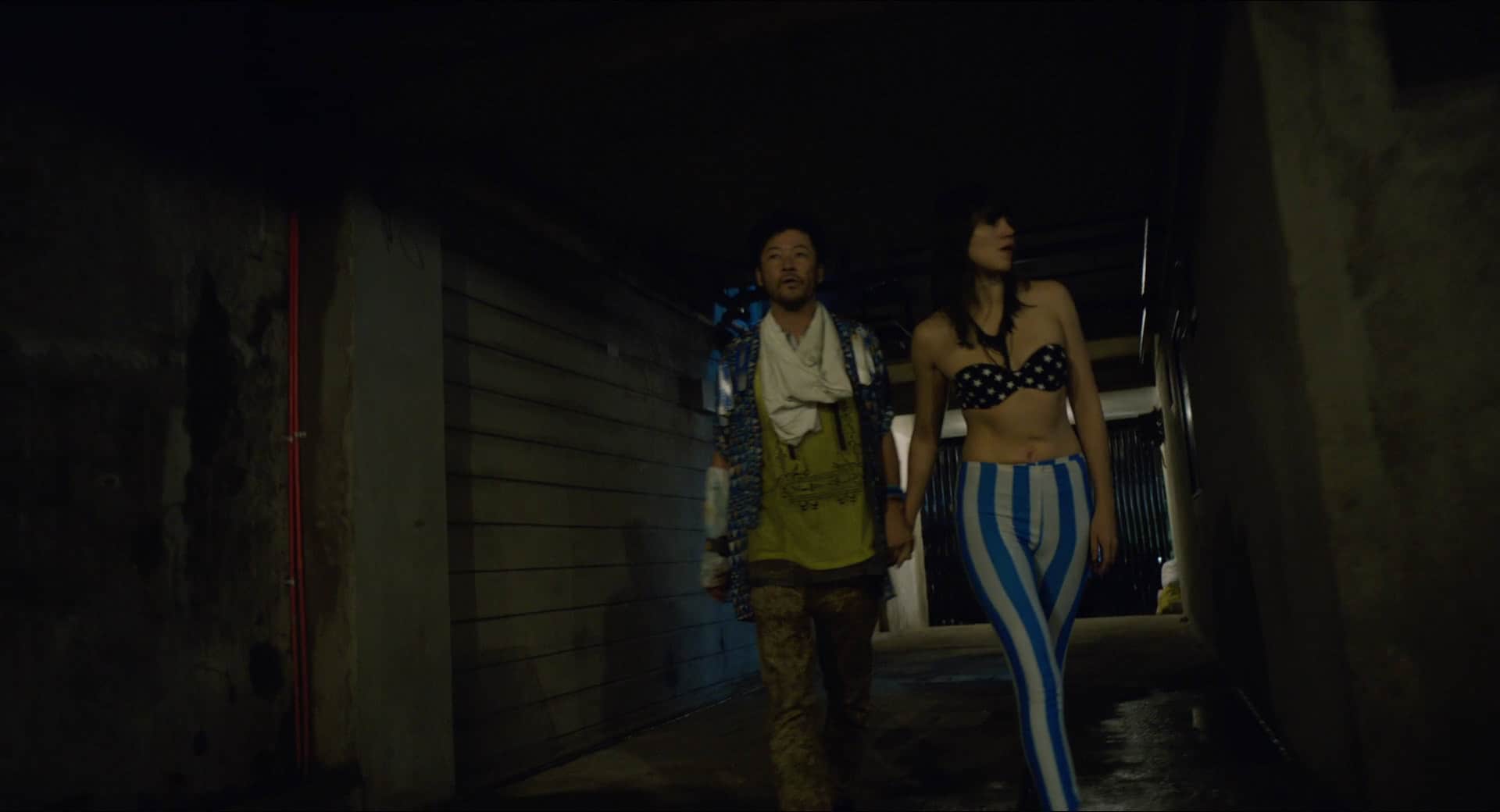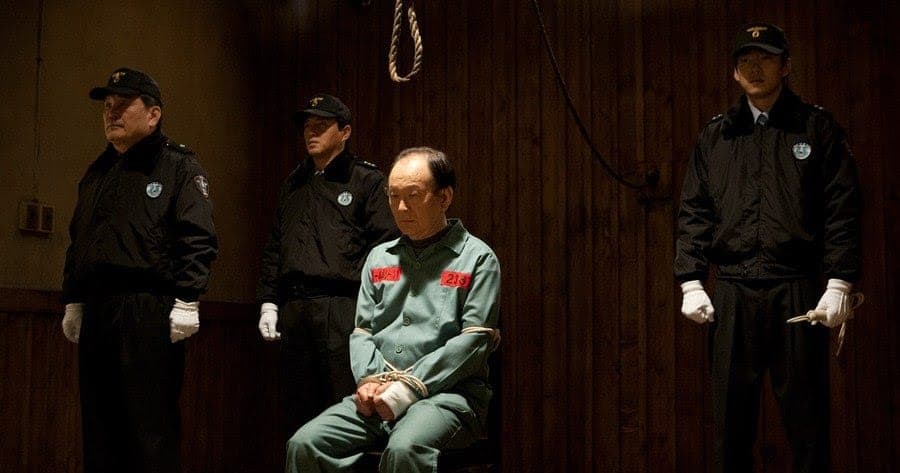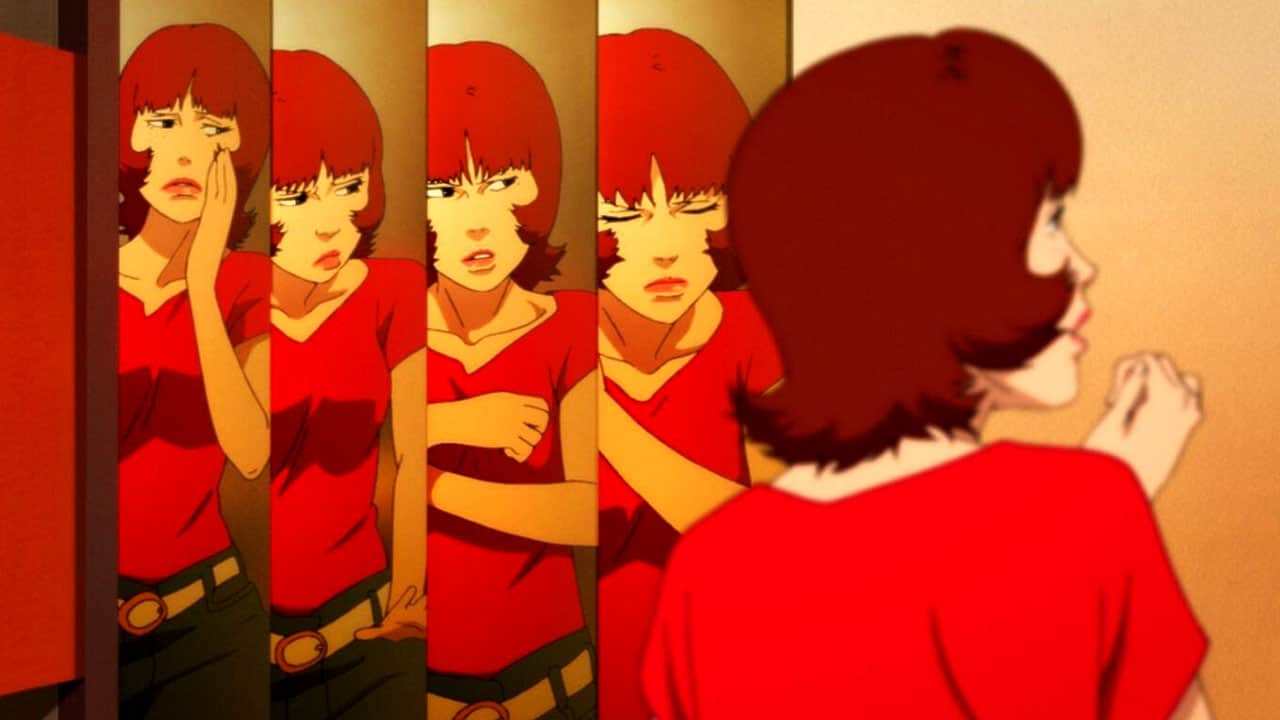Being the first ever Asian film taking place in Inner Mongolia I have watched, I was quite intrigued about what I was going to witness, although the international awards, including the Golden Rooster for Best Actress, were a sign that this is a production of at least some quality.
Watch This Title
Norjmaa is a goat herder who lives in the Mongolian steppe, tending to her livestock and living off them. Her attachment to her land is so strong that not even WWII or the fact that all her neighbors have fled when the war reached a watching distance, make her abandon the place. Her reasons, however, are due to love, since she is still waiting for her loved one to return from the front and marry her.
Her uneventful life crumbles when two injured soldiers arrive at the area she lives, one Japanese, with a wound on his leg and one Russian, with a wound on his hand. The woman takes care of them using all the traditional medicine she knows and the two manage to survive, despite having their injured members mutilated. However, as soon as they gain their senses, both start attacking each other with murder intent, using any way they can and much cunningness, to the disgust and shock of Norjmaa. As time passes though, and after a number of failed attempts to kill each other, and Norjmaa's role as mother/sister extends, something changes for the two men.

The first thing that will strike the film's audience is its impervious cinematography. Xirebdorj has used the already extremely beautiful setting of the Mongolian steppe in a manner that frequently looks like a succession of majestic paintings. The combination of the small lakes, the grasslands, the clear or cloudy sky, the sunrises and the sunsets, the movement of the animals, even the explosions of war are all shot in a fashion that will carry for much time after the movie is finished, due to their combination of beauty and elaborateness. The extensive use of long shots has benefited this trait the most, with the vast, unobtrusive environment actually dictating their use. This however, does not mean that the film shies away from the gore of war, particularly as the wounds of the two men are depicted quite realistically, in all their grotesque glory. Furthermore, the interior in the tent is also visually impressive, and the same applies to the film's colors altogether.
Although the whole movie seems to serve its visuals, Bayin's comment is quite powerful, as it sends a very intense anti-war message, regarding the fact that even mortal enemies can change under the influence of a caring person. Badema gives a great performance as the aforementioned catalyst, treating the two murderous soldiers occasionally as her children and occasionally as her animals, with the latter producing some hilarious moments during the film, as is the case with the two imped individuals trying to kill each other any cunning way they can.
At the same time, the film also includes a number of flashbacks that explain Norjmaa's situation and determination, strengthening, in the process, the dramatic element of the film and at the same time presenting some impressive sequences of horse riding.
Both Dugursurong as the Russian soldier and Mengenerden as the Japanese are also quite good in their respective parts, although the fact that they are Mongolian presented some issues with their accent, particularly with the latter. The two of them have much chemistry, with their fights being among the highlights of the film.
“Norjmaa” is a great film, which manages to present its message through extreme beauty, in one of the most visually impressive movies I have watched the last years.
















